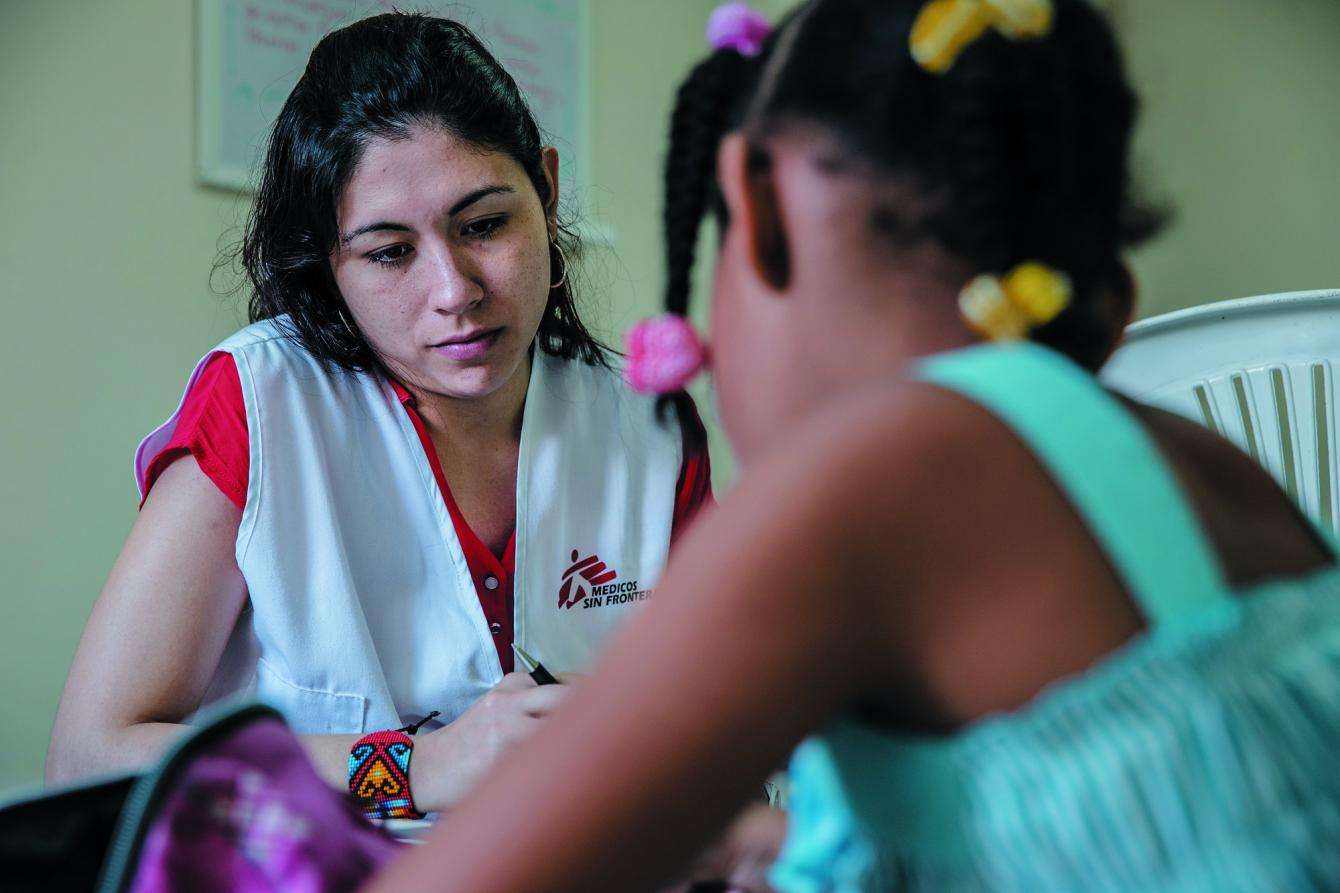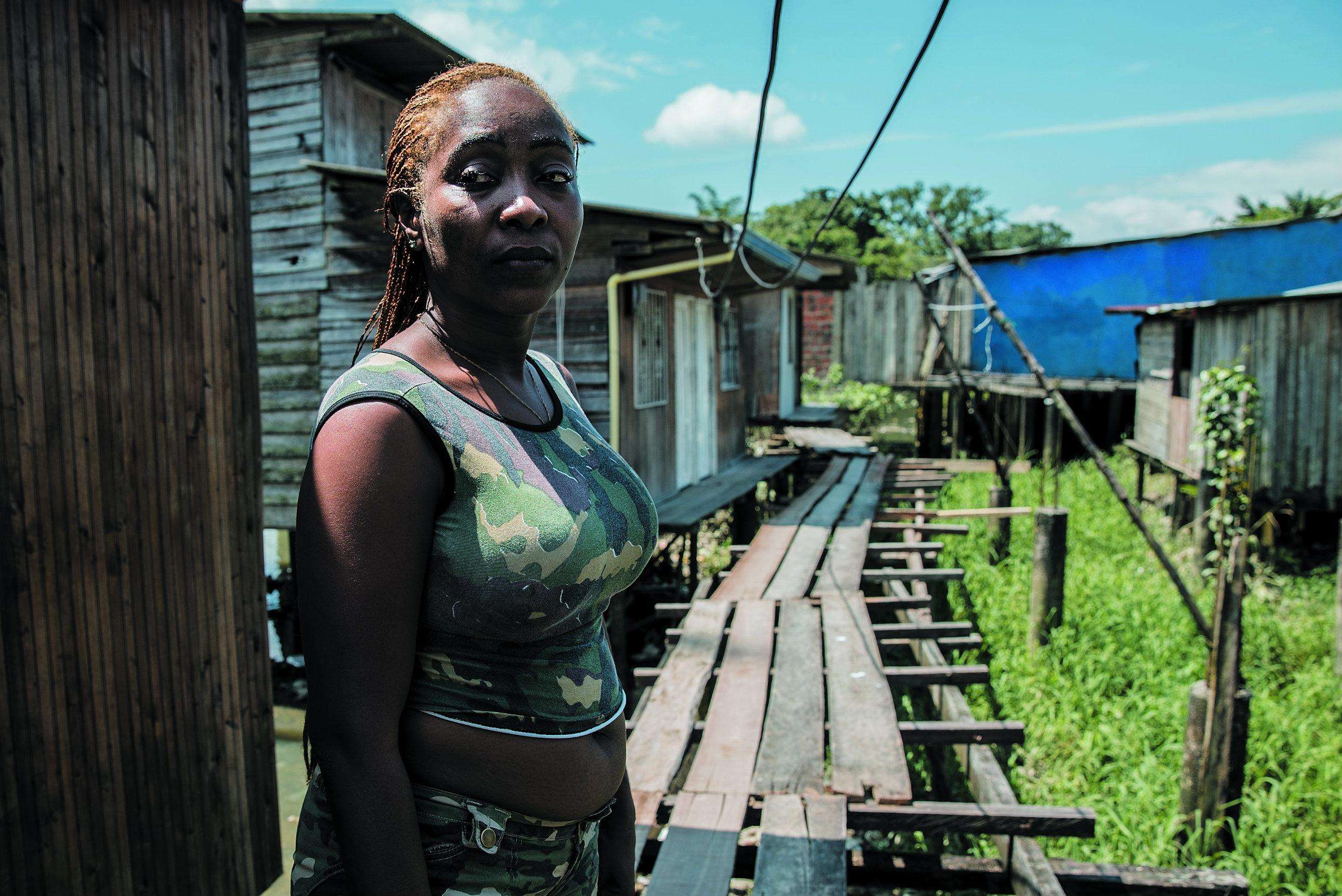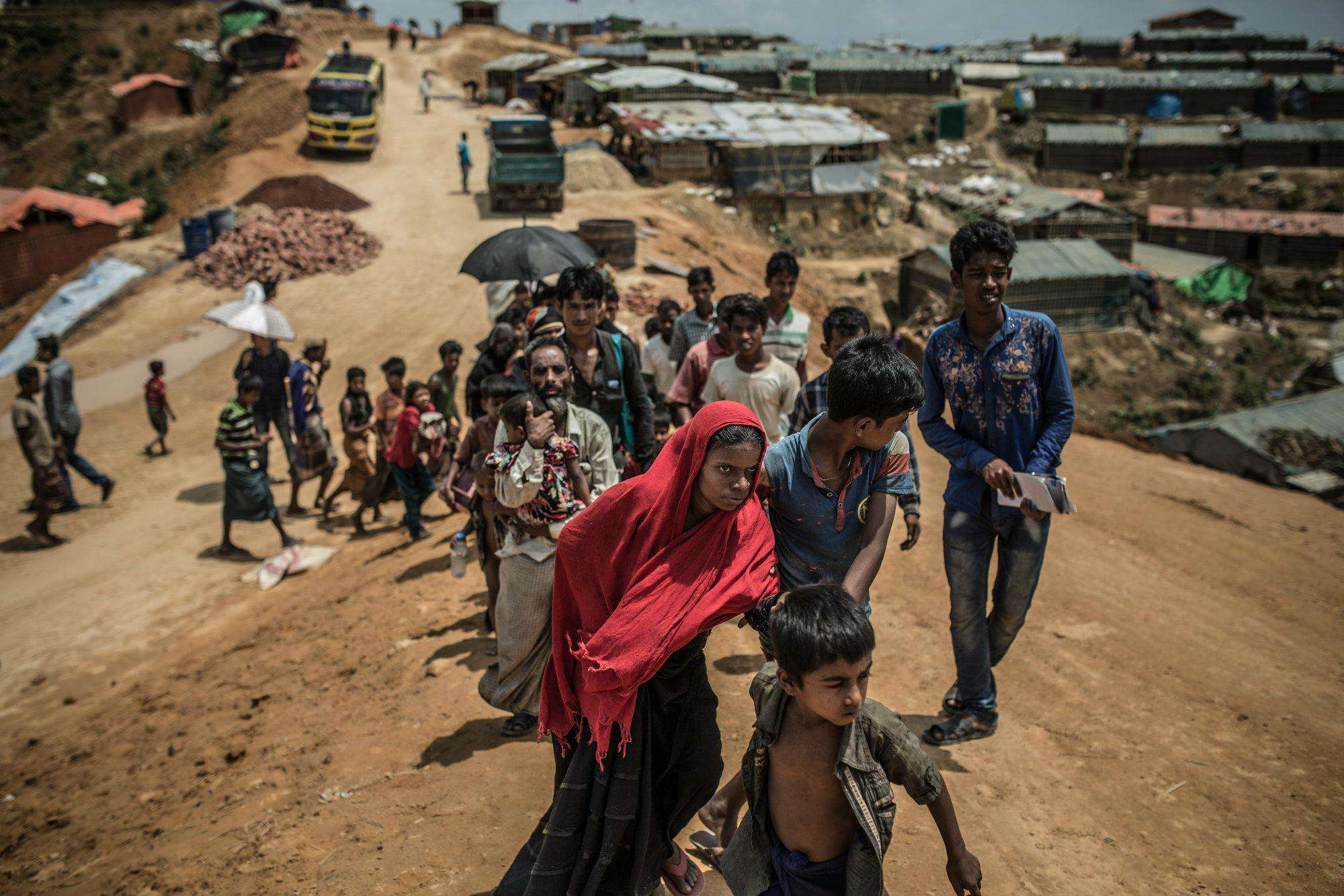In Buenaventura, Colombia, MSF psychologists receive around 1,000 calls a month through a mental health hotline—one of the few sources of psychosocial support for people in a city scarred by violence and conflict.
Buenaventura is the country’s most important port, as well as a hub for drug and human trafficking. For decades, the Revolutionary Armed Forces of Colombia (FARC), right-wing paramilitary groups, and criminal gangs battled for control of the strategic region.
Today, despite a historic peace deal signed with the FARC in 2016, the specter of violence still looms large. Criminal groups composed mostly of former fighters control swathes of the city and surrounding areas. They terrorize the community, often committing gruesome acts of violence with impunity.
MSF hotline staff counsel people who are suicidal, depressed, or anxious after the murder or disappearance of a relative. They provide support to survivors of violence, including sexual violence, and refer callers for follow-up medical and mental health care. Mobile clinic teams are also deployed to areas controlled by the different armed groups that rule much of the city.
The city, with a population of around 300,000, has one of the highest crime rates in the country. At the same time, close to 65 percent of its residents live in extreme poverty and have difficulty accessing the care they need.
“Most patients present with depression and post-traumatic stress disorder, sadness, anger, trouble relating to other people,” said Claudia Andrade, MSF psychologist. “People tell us they’re having nightmares, not eating, or not taking care of their children. These types of behaviors, they’re not so different from what you’d see among people living in a war zone.”

Gisela Díaz, a young mother who was raped by a local militia member and fled to Buenaventura for safety, said she still feels at risk. “They hardly show any of the violence against women and children in the news,” she said. “But the armed groups are still here.”
After being assaulted again after moving to the city, Díaz felt deeply depressed and tried to harm herself. Fortunately, she saw a phone number for MSF and called for help. “You feel good when you release all this repressed pain,” she said. “Because when you don’t talk to anyone, you start having crazy thoughts, like taking your own life.” Díaz is now a local leader supporting other survivors of sexual violence.
In a report published last August, MSF provided evidence that exposure to violent events or the risk of violence has led to intense mental suffering among people living in certain urban areas of Colombia affected by both the conflict and the drug war.
The report, based on data drawn from mental health consultations with 6,000 patients in the port cities of Buenaventura and Tumaco in 2015 and 2016, showed that patients suffered from a range of conditions, including depression (25 percent), anxiety (13 percent), and post-traumatic stress disorder (8 percent).
Despite the immense needs, comprehensive mental health services are generally not available at local health centers, except in the major cities. There is not a single psychiatrist in Buenaventura.
"Violence isn’t only something out there, it also exists within the home, within the family... Violence is contagious."
MSF began its program for victims of violence in Buenaventura in 2015. The team, comprising 11 clinical psychologists and one social psychologist, conducts outreach activities in the community and has three health centers across town. Often the first point of care is through MSF’s telephone hotline and counseling service, established last year. Counselors listen, triage calls, give basic psychological first aid if needed, and help callers make follow-up appointments for counseling or medical care at one of our health centers.
In the last year, the team in Buenaventura has counseled more than 500 women and men who have been victims of sexual violence, including rape. (In Colombia, 89 percent of sexual violence survivors treated by MSF are women.) If a woman comes to a health center soon after a rape, MSF counselors try to ensure that she receives treatment to help prevent pregnancy and sexually transmitted diseases, including HIV. Emergency contraception and post-exposure prophylaxis treatment must be provided within 72 hours of an assault, but often survivors of sexual violence seek care months or even years after an attack.
Increasingly, women in Buenaventura are asking how to access safe abortion services. Abortion is legal in almost all cases in Colombia, but access to services can be limited, causing delays and health complications. In 2018, the MSF team has already seen five women who came in with complications after failed or incomplete abortions. “We provide a safe place to talk to someone in the event of an unplanned pregnancy,” said Andrade.

Many women were resigned to the pervasive violence and did not realize they could get help. “Violence isn’t only something out there, it also exists within the home, within the family,” said Brillith Martínez, a psychologist who began working with MSF in Buenaventura in 2016. “Violence is contagious.”
The program is literally a lifeline for people who might otherwise never have access to psychological care. “We also save lives over the phone…. When you get someone … to climb out of that pit [of despair], it’s highly likely that person will help someone else, and then that person will help another, and so on,” said Martínez. “When MSF helps a single individual, we are also indirectly helping an entire family, a neighborhood, a whole community.”





